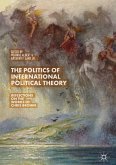This book offers a materialist critique of mainstream human rights discourse in the period following 9/11, examining literary works, critical histories, international declarations, government statutes, NGO manifestos, and a documentary film. The author points out some of the contradictions that emerge in contemporary rights language when material relations are not sufficiently perceived or acknowledged, and he directs attention to the role of some rights talk in maintaining and managing the accelerated global project of capital accumulation. Even as rights discourse points to injustices-for example, injustices related to labor, gender, the citizen's relationship to the state, or the movement of refugees-it can simultaneously maintain systems of oppression. By constructing subjects who are aligned to the interests of capital, by emphasizing individual "empowerment," and/or by containing social disenchantment, it reinforces the process of wealth accumulation, supports neoliberal ideologies, and diminishes the possibility of real transformation through collective struggle.







